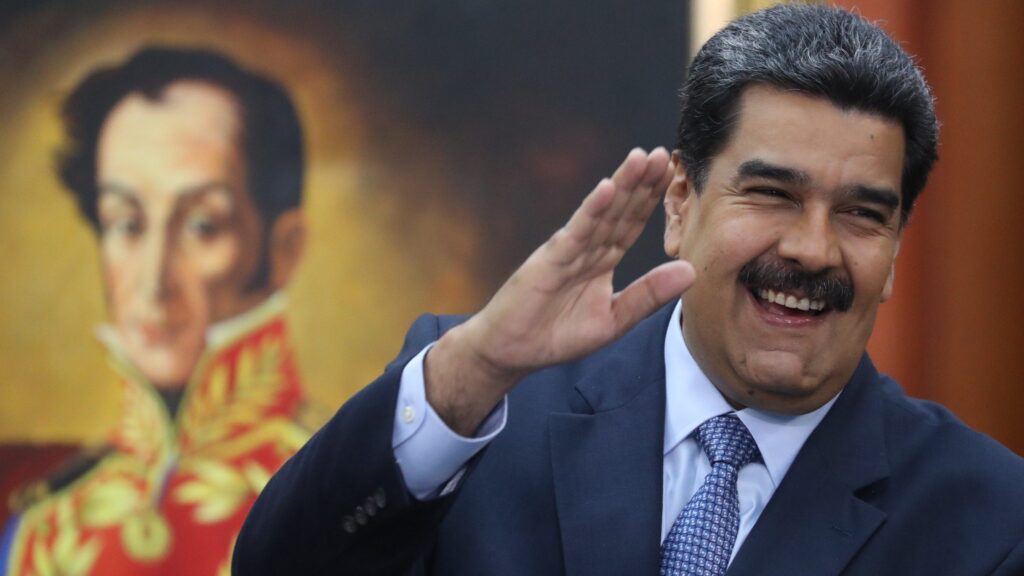It is hard to know what the future holds for Venezuela, its opposition leader Juan Guaidó, or the present U.S.-led policy that emphasizes sanctions and isolation.
Last week, as was wholly predictable, President Maduro’s United Socialist Party of Venezuela, and allied parties, took 67 percent of seats in the National Assembly in an election not seen as legitimate by Washington, the EU and many Latin American countries. Much of the opposition boycotted the poll and according to President of Venezuela’s National Electoral Council, Indira Alfonzo, only 31 percent of the country’s 20m registered voters participated.
The outcome means that Mr. Guaidó, who is recognized as Venezuela’s interim president by 58 countries around the world, has lost his standing, and maybe over time the international support he has had as president of the country’s National Assembly.
As understandable as it was, his decision not to participate may come to be seen as a strategic error along with earlier failings such as his apparent association with a failed mercenary coup.
The bigger consequence is that Mr. Maduro has now captured every Venezuelan institution and effectively has a free hand to pursue an agenda that has seen him preside over the demise of a once-wealthy country.
Despite sitting on the largest reserves of oil in the western hemisphere, Venezuela has been so badly mismanaged that over 4.5m of its people have fled to neighboring countries, hunger and crime have become commonplace, and there is ample evidence that the smuggling of gold, narcotics and other illegal cross border activities continue unchecked.
By any normal measure, an inflation rate this year of 4,087 percent, daily shortages of food, fuel, water and electricity, and a collapsing health care system should have seen a sitting government fairly defeated at the polls, but the sense now is that with this election the opportunity for democratic change of the kind normally seen across the Americas has gone.
Mr. Guaidó is now hoping that support for his ‘consulta popular’ which ends on 12 December will see Venezuelans indicate they do not accept the outcome of the election and want a change of government. To boost his legitimacy, he needs a greater number of voters than those who supported Mr. Maduro’s party. In this, he is backed by the U.S. Administration.
However, the window of support that President Trump provided is closing. His policy of ‘maximum pressure’, sanctions, and attacks on Venezuela and socialism may have helped win Florida, but they have done nothing to deliver change in Venezuela.
In a recent interview with Reuters, Eliot Abrams, the U.S. special representative on Venezuela and Iran, suggested that U.S. backing for Mr. Guaidó remains firm and has urged President-elect Biden to maintain strict sanctions enforcement. This seems likely.
Mr. Biden, who during the election campaign described Mr. Maduro’s government as ‘corrupt and repressive’, is thought likely to continue with present policies as they offer leverage in any future dialogue but is widely expected to review with allies a better-coordinated approach and new solutions.
Despite this, the strongest impression is that governments opposed to President Maduro, have been outplayed and are in a quandary as to their next steps. Some observe that Mr. Guaidó’s popularity has waned, the opposition is fragmenting and is short of funding, and question whether alternative leaders such as Leopoldo Lopez, now outside the country, could garner widespread support.
President Maduro has said that he is now going to “write a new history” free of sectarianism and that the new National Assembly which meets in January will have as its “vital” themes, economic recovery, and political dialogue on reconciliation, and the future electoral route for the country. He has also indicated that he hopes that a channel of communication and dialogue between Venezuela and the US is opened.
So what happens next?
For the EU and Latin nations that continue to support the U.S. line, short of taking the improbable decision to initiate a bilateral dialogue, their most likely option is to search for a country or countries that might be an effective interlocutor with the government in Caracas.
There will always be neutral countries like Norway prepared to help achieve this. However, as controversial as it may be, Cuba could also be among the other most influential contenders. Havana would clearly value some form of broader gradual normalization in its relations with the U.S., albeit not at the cost of its principles or sovereignty, and could see value in creating a basis for dialogue with Venezuela.
Whether countries like it or not, President Maduro is now both de facto and de jure in control of Venezuela. Short of a coup or internal power struggle he can now pursue the policies that are in the interests of those at all levels who support him.
The reality is that sanctions will fail as they have little practical effect on those in power, let alone on the countries that support Mr. Maduro and see geostrategic opportunity: Russia, China, Iran, Turkey and possibly now India too. They will also not stop and may promote the flood of refugees who, through no fault of their own, continue to destabilize neighbors, placing continuing pressure on all borders in the hemisphere including that with the U.S.
For the Caribbean, permanent political change in Venezuela is likely to be yet another factor reconfiguring regional relationships. U.S. pressure has already shown how in Washington’s eyes the region can be divided into the willing and unwilling.
Venezuela could have been a shining example of a relatively benign well-managed Latin American socialist state able to address the many social inequalities which the late President Chavez identified and brought him to power. Instead, as each year has gone by, the country has sunk further into an abyss making any rapid return to stability unlikely.
One starting point for gradual change may be for Mr. Biden to take an early decision to reopen a broad-based pragmatic dialogue with Cuba to establish whether there are reciprocal steps that might lead to a more normal US relationship.
While Havana is not going to throw – metaphorically – Mr. Maduro under the bus he may once have driven, it may be time to recognize that it has the greatest interest in achieving a more stable hemispheric future.
Editor’s note: David Jessop is a consultant to the Caribbean Council and can be contacted at david.jessop@caribbean-council.org
The views and opinions expressed in the View from Europe are those of the author and do not necessarily reflect those of The Caribbean Council.



